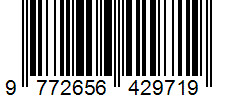Pengaruh leverage, risiko perusahaan dan kepemilikan institusional terhadap tindakan penghindaran pajak (Studi empiris pada Perusahaan Manufaktur Sektor Logam yang terdaftar BEI Tahun 2014-2018)
DOI:
https://doi.org/10.26905/j.bijak.v2i1.4307Keywords:
Leverage, company risk, institutional ownership, Tax avoidanceAbstract
This study aims to analyze and obtain empirical evidence about the effect of leverage, company risk, and institutional ownership on tax avoidance. The sample of this research is the metal sector manufacturing companies listed on the Indonesia Stock Exchange (IDX) for the 2014-2018 period. The number of samples in this study were 18 companies with 5-year observations obtained by the purposive sampling method. The method of analysis of this research uses the Multiple Regression Model. The results of this study indicate that leverage, company risk and institutional ownership significantly influence tax avoidance. Keywords: Leverage, company risk, institutional ownership, Tax avoidance.Downloads
References
Adi, Anindyarta Wardhana dan Nur Cahyonowati. (2013). Pengaruh Karakteristik Perusahaan terhadap Tingkat Pengungkapan Risiko. Diponegoro Journal Of Accounting.
Anwar Pohan, Chairil. (2013). Manajemen Perpajakan: Strategi Perencanaan Pajak Dan Bisnis. Cetakan Pertama. Kompas Gramedia. Jakarta.
Arianandini, Putu Winning dan I Wayan Ramantha. (2018). Pengaruh Profitabilitas, Leverage Dan Kepemilikan Institusional Pada Tax Avoidance. Jurnal Akuntansi.
Atmaja, Lukas Setia. (2008). Pengaruh Corporate Governance terhadap Tax Avoidance. Jurnal Akuntansi dan Auditing.
Budiman, Judi dan Setiyono. (2012). Pengaruh Karakter Eksekutif terhadap Penghindaran Pajak (Tax Avoidance). Jurnal Universitas Gajah Mada.
Desai, M. A. dan D. Dharmapala. (2007). Earnings Management and Corporate Tax Shelters. Working Paper.
Dyreng, Scoot, Michelle Hanlon dan Edward Maydew (2010). The Effect of Executives on Corporate Tax Avoidance.The Accounting Review Vol 85.
Fitria, Giawan Nur. (2018). Pengaruh Kepemilikan Institusional, Komisaris Independen, Karakter Eksekutif Dan Size Terhadap TaxAvoidance. Jurnal Perpajakan.
Faisal. (2004). Analisis Agency Cost, Struktur Kepemilikan dan Mekanisme Corporate Governance. SNA VII Denpasar.
Ghozali, Imam. (2013). Aplikasi Analisis Multivariate dengan program SPSS. Salemba Empat. Jakarta.
Indriantoro, Nur dan Bambang Supomo. (2011). Metodologi Penelitian Bisnis Untuk Akuntansi dan Manajemen Edisi Pertama. BPFE. Yogyakarta
Kurniasih, Tommy dan Maria M. Ratna Sari. (2013). Pengaruh Return on Assets, Leverage, Corporate Governance, Ukuran Perusahaan dan Kompensasi Rugi Fiskal pada Tax avoidance. Buletin Studi Ekonomi. ISSN 1410-4628 Vol. 18 No.1
Low, Angie. (2006). Managerial Risk-Taking Behaviour and Equity-Based Compensation. Fisher College of Business Working Paper.
MacCrimon, Kenneth R dan Wehrung Donald A. (2011). Characteristics of Risk-Taking Executives. Management Services.Mardiasmo. (2009). Perpajakan Edisi Revisi 2009. Penerbit Andi. Yogyakarta.
Ngadiman, Christiany Puspitasari. (2014). Pengaruh Leverage, Kepemilikan Institusional Dan Ukuran Perusahaan Terhadap Penghindaran Pajak. Jurnal Akuntansi.
Paligrova, Teodoram. (2010). Corporate Risk Taking and Ownership Structure. Bank Canada Working Paper.
Pedoman Penyusunan Skripsi Program Sarjana FEB. (2019). Universitas Merdeka Malang.
Peraturan Menteri Keuangan (PMK) Nomor 169/PMK.03/2015 tentang Penentuan Besarnya Perbandingan antara Utang dan Modal Perusahaan untuk Keperluan Penghitungan Pajak penghasilan (Debt to Equity Ratio).
Prasetyo, Irwan, Bambang Agus P. (2018). Pengaruh Kepemilikan Institusional, Kepemilikan Manajerial, Dan Proporsi Dewan Komisaris Independen Terhadap Tax Avoidance. Universitas Jenderal Soedirman.
Ramdhani, Febri. (2018). Pengaruh Risiko Perusahaan, Kepemilikan Institusional, Komisaris Independen Dan Komite Audit Terhadap Tax Avoidance. Universitas UIN Malik.
Resmi, Siti. (2009). Perpajakan Indonesia. Graha Pustaka. Yogyakarta.
Tjahjono, Achmad dan Husain F. Husain. (1997). Perpajakan. Penerbit STIE YKPN. Yogyakarta.
Rusydi, M. Khoiru dan Dwi Martani. (2014). Pengaruh Struktur Kepemilikan terhadap Aggressive Tax Avoidance. SNA XVII Mataram
Sean McGuire. (2011). Dual Class Ownership and Tax Avoidance. www.ssrn.com. Diakses pada Juni 2019.
Suandy, Erly. (2014). Perencanaan Pajak Edisi 4. Salemba Empat. Jakarta
Swingly, Calvin, I Made Sukartha. (2013). Pengaruh Karakter Eksekutif, Komite Audit, Ukuran Perusahaan, Dan Sales Growth Pada Tax Avoidance. Jurnal Akuntansi.
Uppal J.S. (2005). Kasus Penghindaran Pajak di Indonesia. Economic Review Journal I.
Winning, Putu Arianandi Dan I Wayan Ramantha. (2018). Pengaruh Leverage, Kepemilikan Institusional Dan Ukuran Perusahaan Terhadap Penghindaran Pajak. Jurnal Akuntansi.
Widyantari, A. A. Ayu Putri. (2011). Opini audit Going Concern dan Faktor-Faktor yang Mempengaruhi: Studi pada Perusahaan Manufaktur di Bursa Efek Indonesia. Tesis Universitas Udayana, Denpasar.
Xynas, Lidia. (2011). Tax Planning, Avoidance, and Evasion in Australia 1997-2010: The Regulatory Responses and Taxpayer Compliance. Revenue Law Journal.
Yuliawati, 2019. Gelombang Penghindaran Pajak dalam Pusaran Batu Bara artikel. www.katadata.co.id,diaksespada02Agustus2019.
Zuesty, Aisha. (2016). Pengaruh Kepemilikan Institusional, Risiko Perusahaan Dan Leverage Terhadap Tax Avoidance. Universitas Islam Negri Jakarta.
Zulfikar. (2016). Pengantar Pasar Modal dengan Pendekatan Statistika. PT. Raja Grafindo Persada. Jakarta.
Downloads
Published
How to Cite
Issue
Section
License
Authors who publish in JURNAL BISNIS DAN PERPAJAKAN (BIJAK) agree to the following terms:
- Authors retain copyright and grant the journal right of first publication with the work simultaneously licensed under Creative Commons Attribution License that allows others to share the work with an acknowledgment of the work's authorship and initial publication in this journal.
- Authors are able to enter into separate, additional contractual arrangements for the non-exclusive distribution of the journal's published version of the work (e.g., post it to an institutional repository or publish it in a book), with an acknowledgment of its initial publication in this journal.
- Authors are permitted and encouraged to post their work online (e.g., in institutional repositories or on their website) prior to and during the submission process, as it can lead to productive exchanges, as well as earlier and greater citation of published work (See The Effect of Open Access)
JURNAL BISNIS DAN PERPAJAKAN (BIJAK) - D3 Akuntansi, Fakultas Ekonomi dan Bisnis, Universitas Merdeka Malang Published by University of Merdeka Malang, is licensed under a Creative Commons Attribution-ShareAlike 4.0 International License.






